|
It's been a couple of years since I posted on this blog and for those of you that followed me, I apologize for that. I have a few excuses: 1. My son went away to college and didn't need me anymore so what else did I have to say? 2. I'm still really taken back by the fact that he was removed from the clinical trial because he developed a secondary vision issue which we fixed thank goodness but they still wouldn't let him back in the trial. 3. I learned that the clinical trial did not go as we hoped so many of my dreams for a cure for my son's disease have been completely crushed.
Rest assured, these excuses are only excuses for the blog pause. I have still spent much of my time raising awareness for the need for cures for all retinal degenerative diseases. We still have our Black Ties & Blindfolds event every year. In fact, this year, it will be April 18 at the Museum of Science & History in Jacksonville, Florida. If you want to come, please check out the Black Ties & Blindfolds tab soon for instructions. I must admit though, my heart has not been it like it used to be. It's probably wrong, but this journey of a cure has always been a journey that I was taking with my son. Now that he's moved on, it's hard to take it on by myself. I know he needs to move on. So he should and I am glad for him. He is thriving. He's still studying aerospace engineering and has a lovely girlfriend who is majoring in biomedical engineering. Seeing the two of them together is like watching the two smartest people I know make each other happy. That makes me happy. She doesn't even seem to care about his vision impairment which makes me even happier. My dream for him has always been that people will see him for who he is; his brain, his kindness, his ability to empathize with others. I think he's found his match! So, updates from the last blog.... There are still many clinical trials that are showing good results! Please go visit the Foundation Fighting Blindness to see more. The trials that seem to go well are the sub-retinal treatments. The intra-vitreous treatments are the ones that are not working so well. As always, that is my non medical, mom version of the studies. I am glad that these studies keep moving forward. I would really be happy to see an intra-vitreous treatment work. I hope people are still working on that. As I said many years ago in a blog, they cured my son's disease in mice over 15 years ago. It's time to cure it in humans! Also, we are all in this together. Cures are great but getting our kids through every day is more important. I am super proud of my son for always being his own advocate and always emerging from every day ahead of the game. He is amazing! I am very thankful. I would like to help other parents do the same with their kids.
4 Comments
As a mom with a child who has an inherited retinal disease that also happens to be considered an orphan disease because so few people in this world have the same disease, it can be hard. Who do you turn to when your child has been diagnosed? Who do you go to after each and every visit to the retinal specialist/ophthalmologist that lasted for hours because so many tests were needed? Who do you go to when you need advice on if you need a 504 plan or an IEP at school so your kid gets the proper accommodations? Who do you go to when you've done everything right and the school still doesn't meet the required accommodations? Who do you go to when you're just plain pissed that this happened to your child? Who do you turn to when it's time to start thinking about college or a career for your child? Who do you turn to when your kids have those moments when they are upset because they got stuck with one of these stupid diseases? Who do you turn to when you need help trying to ensure that your child doesn't let this disease make him/her feel like less of a person and you want to be the voice of encouragement? Who do you go to when you want to cry but you can't let your child see you cry because you're the voice of encouragement?! Where do you turn when you want your child to have a role model who can prove to them that he/she can still be happy and successful despite this disease and perhaps they can channel the strength it takes to overcome obstacles because of this disease to actually become stronger for it?
I've asked all of those questions many times over the last nineteen years. In the beginning, there was really only one person I could go to, my mom, since she had two sons (my brothers) with the same disease as my son. She gave great advice but the world was a different place back then. There was no hope for cures. There was no social media. There was no community building for rare inherited retinal diseases. Ten years ago, I joined a local chapter of Foundation Fighting Blindness, and the world changed for me and for my son. Today, I went to a local meeting and felt like I was with an extended family. The main mission of Foundation Fighting Blindness is to raise funds for research. MOMS for Sight, Inc. shares in that mission. However, both the local chapter and MOMS for Sight also focus on providing support whenever and however we can. Today, gene therapies are literally in approval phase with the FDA (Keep your news alerts on for January 12 and the FDA for the Spark Therapeutics gene therapy for Leber's congenital amaurosis RPE65 gene. If that goes through, we are on our way to gene therapies for all of these inherited retinal diseases!). In today's meeting, we had some new attendees whose children have been recently diagnosed or are still looking for a diagnosis and need genetic testing. I saw one mom who brought her seven year old son to the meeting with her and it reminded me of when I brought my son ten years ago to meetings. He was nine. I truly believe that our local chapter has helped him become a much stronger person. Our local chapter has provided him with resources, role models, introduction to an amazing doctor who got him introduced to some other amazing doctors all working on a cure for his disease. It also gave him the chance to learn leadership skills (he has spoken at many events and became youth chair and then co-chair for our annual VisionWalk). He became his own biggest advocate for what he needed to succeed. Now, he's at the University of Central Florida in their Aerospace Engineering program. How many legally blind Aerospace Engineers do you know? You'll know one in a few years when he graduates! Social media has also been huge! I have friends that I've never met around the world who share in the same struggles and triumphs. Foundation Fighting Blindness has bi-annual conferences and I've been fortunate enough to meet some of these folks face to face. This year, their conference is in San Diego in June of 2018. I hope to meet some more if I am able to make it. So, who do you go to? Go to Foundation Fighting Blindness. Find out if you have a local chapter. If not, find the closest one and they can still get you connected to people that can help. You can also come to MOMS for Sight anytime! We are all in this together and nobody should feel like they are dealing with this alone. My son asked me yesterday what I want for Mother's Day. Here's how that exchange went down: I want a job (that's another story). He said he couldn't help me with that. My husband overheard that conversation and said, "No, what she really meant is that you should get a job." I liked that idea! Since my son is about to go away to college, a job for him this summer would be awesome. So, he actually applied for some jobs online. By the way, if anyone is looking for a hardworking person in Jacksonville, FL, both my son and I are looking!
The thing I didn't tell him was this... What I really want for Mother's Day is for my son to have his vision restored to full vision. That's not a crazy request, right? I'm a mom, like every other mom in the world that wants the best for her child. Thanks to clinical trials, it's really not that crazy. There are clinical trials going on right now that will treat the diseases like the one my son has and it is very possible that he will have his sight restored. Don't get me wrong, he can see some. However, it takes magnifiers and other aids for him to be able to get stuff done. Trust me, he gets stuff done. I am tired of watching him do more than others just to do what they do. It's got to be so exhausting for him. I am also very proud of him for never giving up and always doing what he needs to do. I don't think all kids with visual impairments are as motivated as he is. I think a lot of kids give up and that's a real shame because they all have something to give society. There are also many kids I have met that are amazing! It's a fact that 70% of people with visual impairments do not work (National Federation for the Blind). That means they are relying on government subsidies. It only takes a few accommodations to help the visually impaired have fully functioning jobs. It is in our country's best interest to make this happen! So for Mother's Day, I want a few things: I want my son to get a summer job, I want a cure for for my son, and I want the world to know that all these folks need are a few accommodations so that they can be fully contributing citizens and we should all make sure that happens! If you want to help, donate to MOMS for Sight! If you don't already have a kid who is visually impaired, please imagine yourself in that position. You don't have to be a mom with a kid who has a visual impairment to be a MOM for Sight. Just imagine it. This post is most likely the hardest one I've ever written and it has taken me a few weeks to gather my emotions. It all started very innocently with amazing hope for my son's future. You see, he was accepted into the x-linked juvenile retinoschisis gene therapy clinical trial. We went through great lengths to get there, including participating in the historical clinical trial in Portland, Oregon. We had to go there every six months for two years. We loved that.
The actual gene therapy trial required much more time in the doctor's office. We had to have an initial visit to get "accepted" in the trial. We knew this was just a formality since the historical clinical trial results led us to believe that he would have no problem getting accepted. He got accepted no problem in December, a very cold time in Boston! Once accepted, it was very difficult to schedule the initial visits needed to get the therapy and then follow up. With amazing hope and a positive outlook, we scheduled a very tight schedule so that he could travel to Boston and spend many days for the initial visits required for the treatment without missing too much of his senior year. I had to be away from work, but luckily, they were helping me work remotely. We get there and day one went well. My son breezed through all of the grueling tests. These were the non dilated tests. Day two, they tested his eye pressure before the dilation. For the first time in his life, his eye pressure was high. Neither my son nor I could explain. He's never had bad eye pressure. I've got to give them credit, this group tested him a bunch of different ways and times. His pressure still showed way above normal. Then, they talked to us about what the problem is and how he no longer qualifies for the clinical trial. We were absolutely crushed... My son was literally days away from gene therapy. Now, we had to go home about a week early. We changed flights and got home. We immediately scheduled an appointment with a really good glaucoma specialist. He explained that because of his extreme astigmatism, the iris needs to get laser surgery to relieve the pressure in the eye. We realize that the set back in Boston is a good thing. If my son weren't in this trial, we might not have realized this new issue existed and his optic nerve could've been damaged, leading to severe damage. So, he got the laser treatment in the really bad eye and will get laser treatment in the other eye in the next couple of weeks. Our biggest hope is that he will be allowed to rejoin the clinical trial for gene therapy once this other issue is fixed. The doctor in Boston told us as he saw my tears forming that everything happens for a reason and that we should be thankful we found this new issue early. I am thankful. Sometimes, though, it feels like we are constantly getting hit from every side and our time in Boston definitely fits that category. If you know me at all, you know that I don't give up until the end goal is met. The end goal is treatment for my family, that includes my son, my brothers, my cousin and the future children of my nieces. It also includes everyone who is living with a retinal degenerative disease, of any kind. I have a couple of favorite parts of our trip to Boston that was supposed to deliver gene therapy. Number one: we learned how to ride the red line/green line. We don't have that kind of public transportation here in our town. If only my son can live in a big city like Boston, he won't ever need to drive and he'll be fine! Number two: as we were walking out of Mass Eye and Ear and I was in total disbelief and just about broke down from sadness, my son grabbed my arm and said, "No, we're not going there. This is just a thing and it will get fixed." He is now the grown up taking over for his own destiny and in case you haven't figured it out, his destiny is awesome! I write this in case there are other parents of children with retinal degenerative diseases who are in one of the stages of loss and you don’t want to feel alone or need to talk to someone. You are not alone. I am here and there are many more like me who can help too. In most cases, I think people believe that a person who loses someone or something important, goes through the seven stages of loss and comes out of the process ready to move on. As a parent who passed on a vision robbing disease to my son, I can honestly say that I go through these stages over and over, and every which way, and in any order. Stage 1. The first stage is shock and disbelief. This stage happened when I first found out my son had X-linked juvenile retinoschisis. I knew it could happen because this disease affected my brothers, my cousin and older generations. But, I didn’t think it would happen to MY son. There was a 50/50 chance he wouldn’t have the disease. I was optimistic and was left with extreme disappointment. Stage 2. The next phase is denial. This stage occurred for me throughout my son’s elementary school years. He didn’t need extra help. He didn’t need large print. After all, he was doing fine. At one point, I had a vision teacher reach out to me to ask why I wasn’t doing everything for my son that was available. Why didn’t he have an IEP? Why didn’t he have a vision teacher assigned to him. That’s where the next stage came in to accompany denial, anger. How dare these people doubt my parenting? I know what’s best for my son. He was making straight A’s. He didn’t need special attention. Stage 3. Anger also came when he started middle school and the print got smaller and he started needing help. That’s when I had to stop denying that he would be just fine without help. It’s really hard to have to ask for help, especially when you refused it earlier. Asking for help made me angry. Stage 4. Bargaining happens every day. Oh the things I would give up in order for my son to have his full vision! It almost sounds like a Dr. Seuss book but it’s not. Other little bargains: Please God just let him be so smart and so talented that he’ll have his own drivers when he is older. Please God, I promise I will never stop fighting for cures for all blinding diseases, even after a cure comes for my son, but I will be okay if you cure him soon. Please don’t let his self-esteem suffer because he can’t drive when all the other boys his age are driving. Please let him have friends that are willing to be his drivers. Please let him find a young woman that sees all the good in him and doesn’t care about his vision loss. Please don’t let him miss out on things like prom, sports, college, a great career, a family, etc… Stage 5. Guilt. Duh. I knew I carried the disease. Without a doubt, I caused my son’s vision impairment. How can I not feel guilty all of the time? Stage 6. Depression. Another duh. See above. Stage 7. The last stage is acceptance. For the most part, I’m in this stage now. Thanks to my son and his ability and optimism, I can accept that he has a visual impairment and that it will be okay. He is strong. He is a really good person. He has not let his vision impairment stop him in any way. He has high hopes for college and his future and is looking to move to cities where public transportation can get him where he needs to go. He will succeed and a little part of me thinks that if he didn’t have the disease, he wouldn’t be trying as hard as he does. So, maybe this disease has actually helped him be a better person. But, there are some things that can easily bring me back to any of these previous phases (usually just temporarily): 1. When someone says, “You actually have to have good vision to do this job.” 2. When people tell me, “He doesn’t look blind.” 3. Every darn time one of his friends get to do something he can’t do: driver’s license test, drive their girlfriend on a date, take a college board test (SAT or ACT) without accommodations, etc… Stage 8. Hope. This isn’t a real stage but I’m adding it in for this one. Hope is the thing that keeps me out of the bad stages of loss. Hope says, cures are just around the corner. Hope says that my son has fought so hard, he might get into a crazy school like MIT. Hope says, companies are looking for a diverse workforce and that includes people with visual impairments. Hope says, it’s all going to be okay and the best thing I ever did in this world was have this beautiful child that will contribute to our society in a big way. Hope is a wonderful thing and it needs to prevail. If you feel yourself stuck in any of these earlier stages that can bring you down an unhealthy spiral, please don’t hesitate to reach out to me to talk. If I can’t relate, I will find someone who can. We are not in this alone. How in the world can we do all of this at once? I work full time, serve as the chapter president of the Foundation Fighting Blindness and run my own charity. My son is in a very advanced AICE program at his school and he's on the cross country team or track team depending on the time of the year, and is trying to keep his band together. We spend our time dealing with everyday issues and with the visual impairment our family was dealt. There's just not enough time to fight blindness too. BUT we find the time. We must fight blindness. If we don't, it will win. Blindness never wins in our family. If blindness wins, then my brothers are not the successful people they are and my son is not on his way to being a successful man contributing to society. Here are my awesome brothers with me back in my skinny days. Nothing can stop us! 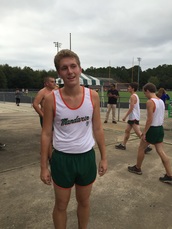 In this picture, we still had so much ahead of us. Our kids were still really little people with so much potential! It's been years and our kids are almost adults now. Because X-linked juvenile retinoschisis is an x-linked disease, my brothers did not have children with the disease. Their children don't have it but their daughters can carry it on to their children. I was a carrier. My son has the disease. Like my brothers, he is visually impaired. Growing up with my brothers made me realize that even if I had a child with this disease, he would totally be okay. My brothers are. With the right support and motivation, this visual impairment wouldn't stand in his way. We just have to fight through the obstacles and he has to become his own advocate, which he has. Today, my son participates on his school's cross country and track teams. Another parent recently asked, "How do you let him run? Doesn't he trip and fall?" I said, "Of course he does, but don't we all?" My son just ran the 1500 meter in 5 minutes and 45 seconds. Apparently in the track world, that is middle of the road, but in my world it's pretty awesome. Plus, he is with a group of kids that support him completely. Accommodations are made. When they have practice in the dark, which is often, the coach makes sure my son runs on smooth pavement. My son will endure any test because he wants to succeed in life. Those tests are not just the academic ones, which he excels at by the way, but also the clinical trials. He not only wants to become an aerospace engineer but he want to do his part to cure blindness. We are going to our last visit next month for the historical clinical trial in Portland, OR. The folks at Mass Eye and Ear have already contacted us to be part of the gene therapy trials in Boston. We are so excited. We are on our way to finding a cure for this disease my family has lived with for generations! Brendon does what he can to promote awareness for finding these cures. Just recently, Foundation fighting Blindness featured us in a video and also HealthSource magazine wrote our story http://mydigitalpublication.com/publication/?i=289193#{"issue_id":289193,"page":14} If you would like to join us in our fight to end blindness, please contribute to MOMS for Sight and better yet, come to our annual gala and have some fun! http://www.momsforsight.org/black-ties--blindfolds.html
So, we had our third visit to Portland, OR at Casey Eye Institute for Brendon's historical clinical trial. This was the visit we were hoping to hear the news of the actual gene therapy trial. We did. There was good and bad in this visit and, as a mom, mostly what I'm feeling is disappointment. Although, it's not about me so I have to focus on everything good. So, first, I will share the great things I learned. Then, I'll share a little of the disappointment. So, the good stuff. The historical trial is coming to an end. We only have one more visit to Oregon in January. Even better news is that the gene therapy trials have begun!!! There are three different locations where the gene therapy trials are currently happening: OR, TX and MI. Group 1A has received treatment. Treatment means a shot in the eye, but could also equal improved vision! This is awesome news and we can't wait to find out the outcome. There will be four different treatment groups (1A, 1B, 2 and 3) with subjects over the age of 18 where they are testing for dosage. Brendon can't be part of these groups because he is not 18. I am okay with that. We never wanted him to be one of the first "guinea pigs" anyway. For those who are stepping up to the plate on this one, we thank you wholeheartedly and hope and pray that this treatment works for you! Brendon has joined his cross country team at his high school. All summer, he has been getting up super early to get to practice. The week we were scheduled in Oregon for his Casey Eye Institute visit, his whole cross country team was at a college in Georgia running mountain trails. Since Brendon couldn't run the mountain trails, he ran up Multnomah Falls. In the beginning, I was following him up so I could be there in case he tripped or had issues but I had some issues where I froze in place in fear of the shear cliff drop that we saw on the not-so-manicured trail. I felt like I was going to fall off the side to my death. So, being the worst mother in the world, I walked to a safe point and waited for Brendon to come back. I waited what seemed like forever, with horrible thoughts of him not seeing the trail well enough to stay on it...He came back eventually and looked at me like I was crazy. He said something like: "Mom, I paid attention to the trail and never bothered to see the drop off." I guess that's good?? In years to come, that might just be one of Brendon's rights of passages to adulthood.He actually made it to the top of the Falls. I never did. And I have full vision. So the good news is simple, we had another great visit mixed with doctor and fun. The gene therapy has begun. The bad news is not so simple...
To sign Brendon up for the gene therapy, we will be signing away so much of his time. This time is currently filled with school, friends and activities. The gene therapy trial consists of 12 visits in the first year. Since none of the trials are occurring anywhere near where we live, it will be both costly and time consuming. The costly part we can probably deal with but the time consuming part will be difficult to overcome. In this study, the "subject" needs to be there for the following visits: visit 1= screening visit 2=exam 7 days before treatment visit 3=exam plus treatment injection visit 4=day after treatment exam visit 5=week after treatment exam visit 6=two weeks after treatment exam visit 7=one month after treatment exam visit 8=two months after treatment exam visit 9=three months after treatment exam visit 10=four months after treatment exam visit 11=five months after treatment exam visit 12=six months after treatment exam then, for the next four years, it's a yearly exam It would be one thing if the trial was occurring locally but none of the locations are anywhere near us. If we are to do this, his entire junior/senior years of high school will be consumed with a gene therapy trial that may or may not be useful. That is not fair to him, especially since he is in such an intense program at school (AICE) that he is adamant on completing successfully. Even if we could make it work with his school, how in the world am I ever supposed to get enough time off of work to make this happen? Given the circumstances, even Brendon doesn't think we can do it. I had one friend tell me that I should put Brendon's education on hold and take a leave of absence. I had another friend tell me that I need to let Brendon live his life without this kind of disruption and that if it is meant to be it will happen. I am simply without answers. We have been fighting this fight for years. Are we giving up if we don't participate? Will there be another chance for us if we wait? If I make all kinds of life adjustments to actually make the treatment happen, will I be hurting Brendon's chances for his future goals? There certainly are no easy answers in any of this and I hope that the doctors, investors, and researchers understand that the "subjects" are actual people sacrificing for this study. We are all extremely thankful that the gene therapy has made it to the actual trial. However, it is a lot harder than we all thought to participate.. If there is anyone in the OR, TX or MI area with retinoschisis who hasn't yet looked into being part of this study, please just take a look. I've seen what similar trials have done with children with LCA (a similar disease) and am extremely hopeful that it will do the same or better with children with XLRS. I'm not sure yet if we'll be able to figure out a way. If we can, we will. I have also heard that there is a possibility that the gene therapy will also take place at Massachusetts Eye and Ear. If that is true, we have a better chance of taking part. We will see. I'm relying on the statement of my friend who said if it is meant to be, it will happen. Last time we went to the Casey Eye Institute, we added in some extra days for some Summer vacation time. This time around, we got there on Sunday afternoon which only gave us a day and a half to have some fun before the day of grueling tests began for Brendon. We decided to stay in downtown Portland this time so we could do some exploring by foot. There were some things downtown that we wanted to get off of our "to do" list. We stayed in the Marriott Downtown Waterfront and they were nice enough to get us a waterfront room. We could see the Willamette River right from our room. Plus, we were within walking distance of some nice waterfront restaurants. It was pretty dreary out those first two days but that didn't stop us. One thing on our "to do" list was to visit Voodoo Donuts, made famous by Anthony Bourdain's "No Reservations." So, we left the hotel and walked along the riverfront until we reached Burnside Street and made a left until we saw the large line of people waiting in the rain for donuts. Yes, we made it 3 thousand miles from Florida and one mile walking in the rain from the hotel so we weren't going to turn around now. We stood in line and took in the atmosphere. The atmosphere in Portland is quite different from home. Yes, we have our share of homeless but in Portland, they literally take camp under most overpasses, not just one or two people, but entire rows and rows of individuals, couples and families... In some cities, it might seem a little dangerous to walk by such places, but in Portland, everyone just seemed to get along. As we got closer to Voodoo donuts, things did get a little more strange. In fact, right next to Voodoo Donuts, there's a building with a sign that says "Keep Portland Weird." We finally got inside and ordered our donuts. It took everything in my power not to order the maple bacon donut. Now I regret that decision. After Voodoo donuts, we walked through more parts of downtown and found a nice cozy coffee shop to just sit and do some people watching. Lance, my husband, and Brendon also managed to find a Microsoft store where they could get their game on for a little bit. The next day is one that probably made the whole trip worth it for everyone. Brendon has never seen snow. Our plan was to go to Mount Hood Meadows and go skiing. We thought that plan was not going to work because of all the rain. Nevertheless, we started the drive to Mount Hood. We had heavy rain on many parts of the drive and even when there wasn't heavy rain, Interstate 84 was simply saturated and I got really scared driving through the many hydro slide areas with giant trucks everywhere. At one point, I was truly ready to just turn around but I knew I couldn't disappoint Brendon who was sitting in the back seat willing us to keep going. Well, soon, somewhere after travelling through the apple orchards along Oregon State Road 35, the rain turned to snow. We're from Florida. We don't know how to drive in snow. In fact, we weren't even sure if our rental car had traction tires (until we got out and checked. Luckily it did) We put on the rental skis and went down that mountain. Snow hitting our faces. Lance, went down numerous times like a pro. Brendon and I took it more slowly and became quite intimate with the snow (sometimes face first). It was awesome though and I'm so glad we didn't turn around. By the time we started driving back, driving in the snow wasn't so bad. That night, we walked to the Melting Pot because Brendon wanted to experience eating underground. As it turns out, it's the same expensive Melting Pot anywhere you go but it was still fun. We were full and exhausted by the end of the night. The next day was the Casey Eye Institute. All Day. Lance dropped us off at the office at 8 am. We immediately began with the Visual Field Test and continued with the Visual Acuity. The Visual Acuity test was different this time. Normally, when I watch Brendon take these tests, I know which letters he's going to be able to see and which ones he's not. This time, he wasn't able to see letters that he's been able to see in the past. Rather than let panic set in, I let the folks at the Eye Institute do their jobs. They tested his reading speed, contrast sensitivity and had him complete a questionnaire. We got to run down for a quick bite to eat while his eyes were dilating and then right back to more tests. He has a really bad astigmatism in his right eye so many of the tests are more difficult. On some, they actually just gave up and used the best information they could get. The electroretinogram (ERG) is one of the hardest tests. It comes in two parts. Before it can be given, we sit in a room that is completely dark for 20 minutes. I sit with him so he doesn't have to sit in the dark for that long. It's really kind of creepy in that room with zero light. Then, someone walks in with a red head light on directing Brendon to the first test where he has to wear electrodes connected to his eyes and stare at a screen while they get some measurements. This can take a while. Next, the lights come on and they move him to another test with the electrodes. This one, I got to watch from behind. He had to stare at this psychedelic screen for 8 minutes with each eye. Here's a short video After the ERG, Brendon got his Photography, OCT exam. This is where they look at a photo slice of the retina. As usual, his results showed large schisis. I paid particular attention to this one because I wanted to see if there was a difference in his left eye (or his "good" eye). If so, maybe that's what caused the visual acuity to worsen. Of course, I couldn't really tell, It looked bad but I couldn't tell if it was worse than before.
Next was the actual doctor visit. Here's where I would find out if his vision has actually worsened. After the doctor reviewed all of the test results and gave an exam, he confirmed that Brendon testes worse in his left eye this time. He also said that he didn't have enough history to tell if this was just anomaly. My hope is that it is just an anomaly. However, I've been coming to doctor's visits with Brendon since he was a baby and I haven't seen that kind of change. So, my fear is that this degenerative disease of his might be seeing some degeneration. It's probably time for a visit with Brendon's awesome doctor here in Jacksonville to confirm since he has a full history. Either way, we got some really incredible news on this visit. It looks as if there is approval to go ahead and start gene therapy on a select group of patients this summer!!!! These patients are older than Brendon and have more severe vision loss. Basically, this is to see if the therapy is safe. The treatment will be invitreal vs. subretinal. With retinoschisis patients. a subretinal treatment is not preferred because of possible damage to the retina. Either, way, the treament will equal a needle in the eye and it is still unknown if it work or even whether or not it will cause more damage. From Jacksonville, FL to Portland, OR. It sounds strange to travel that far just for an historical clinical trial but we did and we will be doing it at least three more times. If all works out the way it should, and the trial leads to a gene therapy, we will travel the distance even more times. Heck, I've been telling my son since he was born that I love him from here to the moon and back again and again. So, what's a mere 3000 miles to find a cure for his x-linked juvenile retinoschisis? From the time I scheduled the trip, I wondered if I was doing the right thing. It was so far away and the kids are not used to that kind of travel. Plus, if it means they are disconnected from any electronics, things could go downhill quickly! We tried to schedule as many cool tourist things as we could around the doctor visit. The minute we got there, I knew in my heart we were in the right place. Brendon (my son) loved it there which was crazy because Brendon always has some trepidation when it comes to experiencing new places and things. It was a sign. As crazy as it sounds, Portland became his new love. To this day, he still says "Everything is better in Portland" and he can't wait to go back. After a really long day traveling, we got there and made it to the hotel. The next day, Brendon and I made it to the Casey Eye Institute at the Oregon Health & Science University. This place is awesome. It's an unbelievable hospital on a giant hill (what we would call a mountain in Florida). You can literally take a sky lift to get there if you want. To our delight, when we got there, we were immediately greeted by Joycelyn, the study coordinator. We were quickly escorted to the area where we would spend the better part of two days getting Brendon tested with all the tests that are truly miserable for him. Something about being in this place and being treated so nicely made it different though. Even Brendon seemed to be doing okay through the tests. Here he is with Joycelyn. Here he is again... still positive! OHSU actually gave us the results of Brendon's tests on a CD which was really cool. Here is his OCT scan. All those gaps you see are not supposed to be there. This is what his OCT should look like. No gaps with a nice dip in the middle. Brendon has no dip. I know that's not the technical term but I'm going to call it MOM language... The next test is the visual field. Most of us see 180 degrees around us. A nice circle of vision that is basically a dome and we can see one half of it. Here's what Brendon sees. If he had full sight, you would see two circles. These certainly aren't circles. Here's an image that shows how his retina is in pretty bad shape (again - MOM language). The dark areas clearly show where things are going very wrong with his vision. I truly wish this were a simple picture of Mars, but it's not. There should be no dark areas! None of this was news to us. We knew these results would be the same as the results we've been seeing since Brendon was three months old. What was new to us was the fact these tests were being done by people who are literally spending their days trying to find a cure for Brendon and others like him. Let's face it. This is a crazy rare disease. The fact that people are trying to cure it is simply amazing. They have my utmost admiration and appreciation. And we will travel 3000 miles as many times as we need to help them help us. Dr. Pennesi and Joycelyn Nimi - Thank you for giving us hope! Dr. Grover & Foundation Fighting Blindness - Thank you for connecting us to Dr. Pennesi and Joycelyn Nimi! Casey Eye Institue - Thank you for being in such an awesome place! If you want to help this awesome cause, you can donate to MOMS for Sight. We give to the Foundation Fighting Blindness, an organization that funds the kind of research that will cure my family's x-linked retinoschisis and many other retinal degenerative diseases! I mentioned we saw some touristy stuff too. Between the waterfalls and the Pacific Coast Highway, we were in awe of Oregon. It is truly beautiful. See our pictures below. The only things I don't understand are the on-ramps where the traffic lights only let one car from one lane through at a time. I did enjoy letting someone pump my gas. I remember full service gas when I was little and my mom used to get her tank filled by the nice guy at the gas station. Apparently, in Oregon, it's law. We will be going back for a follow up at OHSU in February so hopefully, we'll have skiing pictures from Mt. Hood to show next. Brendon has never seen snow and he's usually pretty cautious about heights. However, since we'll be in Oregon, my guess is he'll be ready to try another new experience! After all, everything is better in Oregon!
I may be over sensitive about my son's situation this weekend but that's just the way it is and I won't be apologizing for it in case anyone is looking for an apology. Friday, I attended his MRT at his school. I'm not exactly sure what it stands for but it basically ensures that he'll continue to get the necessary accommodations at school. Of course what I realized is that I still have to double and triple check with everyone at the school and that still doesn't mean they'll do what they're supposed to. This year he had to take three major tests (some college credit) during make-up times because the school was not prepared the way they were supposed to be (by law). The worst part about the meeting was when his vision teacher suggested that it was time for his mobility training to help him get around. At first, I think my son and I were okay with it because it will help him learn the public transportation system. It will be good for him to learn how to get around since he won't be able to drive. Then, the vision teacher said a word we never thought we'd hear. She said that my son will also learn how to use the white-tipped cane. The CANE! He's legally blind but not functionally blind so I didn't understand why on earth he needs to use the cane. Then, when I looked over at my son I could see that his whole body had stiffened and his face went blank with fear. While all of his friends are getting their driver's licenses, my son is hearing this woman tell him that he needs to start learning how to use a cane. I literally wanted to take off my shoe and throw it at her. (I know that's wrong but that's how I felt). This weekend, I'm realizing exactly how hard some things are going to be for my son. I knew it was coming but it really hit home when I heard the 'cane' word. I wish I could take his place. I wish so much that he could just have his full sight. I hope and pray that he'll overcome it all. I've seen some amazing people do awesome things despite vision loss but I've seen others just kind of hide from the world. He's so strong and smart but he's sensitive too and the next few years in high school are going to have some really painful moments. Needless to say, he's not going to be getting trained on the cane. If the day comes when he needs it, I'm sure he'll figure it out. Basically, that teacher just said to him, "Prepare to be blind." That's not what any 15-year old should ever hear! Doesn't she realize it's our mission to fight blindness? So, I guess it all started a few months ago when my son had to take his FCAT. FCAT is a pretty standardized test and fairly simple in Florida so I wasn’t too worried. That is, until I learned that the school didn’t have the right accommodations set up for him for this simple exam (even though they knew months ahead of time these accommodations were not only good for the student but required by his IEP plan. After all, I sent him to this school for their AICE program (a program that awards him the AICE diploma if successful) This AICE diploma could get my son very far in school and we think it will based on his knowledge. However, the testing is far from acceptable and from what I can see, will not be fixed without some major fixes from the district. Please keep this in mind when looking for high schools for your children. This program for my son has always been the indisputable program for kids that want to be engineers. However, if your child happens to have a visual impairment, you may want to reconsider. Something's got to change. Last night, we had our big fundraiser for the year, Black Ties & Blindfolds. It was a great success. We raised funds for research for cures to these blinding retinal degenerative diseases and everyone who came seemed to have a great time! I'll always remember the night for one thing. A wonderful young woman with a similar disease to my son came to me and said that she wished her mother had handled her disease like I handle my son's. I immediately wanted to hug her and fix all the things that needed fixing, past and present. You see, it wasn't that long ago that children grew up with these diseases and had very little hope and very little help. Unfortunately, parents were told by doctors to prepare their children for a world of disability. Schools didn't have to do a thing to accommodate students. As a matter of fact, they could send these kids to 'special ed' even though their visual impairment had no bearing on their intelligence. I watched my super smart, engineer brother grow up with no help. The most he had was my mom talking to his teachers and making sure he was in the front of the class so he could see the board. By the grace of God, he successfully finished college and really did become a very successful engineer. Back then, my mom taught him strength. Her basic message was that he will have to suck it up and work harder than everyone else to succeed. He did! Today, there is so much more help. I started the same way for my son... Suck it up... He did that very well. Then I finally got the message from awesome vision teachers and friends I've met through Foundation Fighting Blindness that he doesn't have to just suck it up. There are so many tools out there that will help him succeed. Now, my son and I seem to be on a mission together. We educate, fundraise for cures, and we make sure he is his own advocate. He's got to learn to ask for what he needs. People are absolutely willing to work with him. With my brother, they didn't have to. He often hid his visual impairment. With my son, it's the law and he announces it to his classes so the teachers and kids know and understand. It's a whole new world. So, for those who grew up before all the ADA rules were put in place, I would say, "I'm so sorry that you had to grow up in that environment." BUT also, look at how much stronger you are as a result! My role as a mother is to embrace my son, for all his abilities, to show him that this disease is not going to hold him back, to make sure he succeeds in whatever he wants to do, to keep him positive, to teach him how adversity will only make him stronger, and most of all to love him. So, when this young woman came to me and said what she said, I felt a little glad that maybe I'm doing an okay job with my son, but I also ached for all the kids who grow up feeling like they've just been dealt this bad hand of cards and are left to handle it. I hope to use MOMS for Sight for this very reason. We're not just here for our kids but we have to help all parents see what resources are out there to help so that no child ever has to feel the need to 'suck up' their visual impairment again. It's just too hard for kids to do that...and today it's no longer necessary. For some reason, asking for help has always been extremely hard for me. I think part of that is due to my mother constantly encouraging me to succeed on my own. She wanted to make me strong and thank goodness she did because life throws a bunch of hurdles at you and then seems to laugh at you when watching you try to jump them all. Luckily, I have learned to jump, probably thanks to my mom. The biggest hurdle for me was the plain fact that my son was born with a blinding retinal degenerative disease. Even then, my mom served as a role model, because her sons were born with that same disease and she knew that I could be a carrier. I think that's why she taught us to "jump" the hurdles. Most of those hurdles just meant teaching my son to do the best he can despite his disease.
My mom is awesome, don't get me wrong, but six years ago, I found the Jacksonville Chapter of Foundation Fighting Blindness and I discovered a whole new group of people that were jumping their own hurdles. My mom and dad had to go through years of jumping hurdles alone. Now that I found this group, I was no longer alone and the hurdles seemed much easier to jump. Not only that, but I realized that there were thousands of people across the country trying to raise money for people with these blinding disease. So, now I had a mission. BUT, I also have had this ongoing theme of never really having to ask people for help. Raising money for cures clearly means you have to ask people for help and in some cases, you have to come right out and ask for money. After all, it's the money that pays for the research that leads to cures. I'm also impatient. Doctors cured my son's disease in mice over ten years ago. Why is it taking so long to get that cure to a human? Did you know it takes $40 million just to get a potential cure to a human clinical trial? Do you know how long it takes to raise that much money? Did you know that if everything goes perfectly it could take over 15 years just to get that potential cure to a human even when the trial is fully funded? I AM ON A MISSION! I can't sit around being afraid to ask for help any longer. Brendon's friend's are getting their learner's permits. They're going to be driving their dates to the movies soon. Today, Brendon doesn't get to do that. I know life could be much worse... but imagine not driving and what that does to a young man. Brendon said to me the other night that this disease was both the best and worst thing that ever happened to him. It's taught him to jump hurdles that none of his friends even have to imagine. It's also taught him to be strong. BUT I'm sure that there are times when he's not strong, when he feels angry at the world for making him have to overcome something he shouldn't have to overcome. I'm constantly amazed at his resilience but darn it, he shouldn't have to be so resilient! So, all the shame I used to have in asking is gone. Quite simply, we need funding for research and we need it now. If you agree and you want to see Brendon and the millions of others with these diseases see cures, then join us in our fight against blindness. You can join us in many ways: Direct to MOMS for Sight: http://www.momsforsight.org Direct to Team Brendon: http://www.fightblindness.org/goto/teambrendon Direct to Team Optimistic: http://www.fightblindness.org/site/TR/VISIONWALK/VisionWalktr?team_id=74760&pg=team&fr_id=5230 My son hates going to the ophthalmologist every year. After seeing what he endures at each visit, I don't blame him. It's not much fun for me either. Let me take you through a day at the ophthalmologist for someone with a retinal degenerative disease. First, understand, that we see the top research doctor in Jacksonville from UF Department of Ophthalmology . He is wonderful. The problem is, he works at a research hospital that also serves the city's uninsured, indigent, and prison population. Needless to say, when we get there, anything can happen, including a man in an orange jump suit with shackles waiting with us. By the way, the man in the shackles seems to get to go ahead of us in line. Our doctor has tried to make it easier by making sure we come on his "research" day. So, we avoid a lot of the craziness. However, the wait is usually incredibly hard to deal with. We deal with it though, because we know it's the only way to get the best care and the latest greatest information on my son's disease. Once we are finally seen, the tests begin. Usually, at first, it's just a basic eye exam and an acuity test. The news never gets any better here. They ask my son, can you see the first line? "Yes. It's an E. Can you see the second line? "Yes. It's L S A." I look at what he's seeing and he usually gets about two of the three letters right. My heart sinks. I'm used to this though. While I keep hoping by some crazy miracle, all of a sudden, he'll see just fine, he still doesn't. So, time to tough it up and get ready for the rest of the day. Next comes my son's favorite part (sarcasm). The numbing eye drops and the dilation. At least before while he was waiting, he could play on his iPad or text his friends. Now, that is out of the question. Instead, he sits with his eyes closed because the light hurts. We get called in for the next test. Now, I may get these tests out of order. There are so many. Sometimes I forget which comes first. The basic eye exam consists of the ophthalmologist and his interns using specific instruments and lights to look through the front of the eye to see the retina (the back of the eye). The doctor luckily never sees serious changes to my son's retina through this exam but he does use it as a teaching instrument for his students. At least one student will have to play "guess the disease." At least this part is sort of fun because my son usually stumps the interns. They can't figure it out. Although the lights and multiple exams can be somewhat frustrating. We will do it though, if it means we can raise awareness and find a cure and help others too. The next exam is the OCT (Optical Coherence Tomography). It uses a very thin laser beam to measure the thickness of different layers of cells in the retina. My son has a very hard time keeping his eyes focused for this exam so it usually takes many tries to get the results correct. I understand this is a problem with many people who have these retinal degenerations. 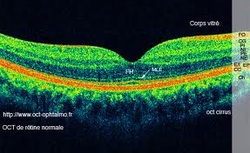 An OCT of a normal retina will look like the picture to the left. There should always be a dip in the middle (I'm sure there's a better medical description than I'm giving it) and the layers should appear attached to each other  My son's retina looks more like this picture to your left. Then, there's the visual field test. The visual field test is something that my son will have a place to rest his chin and look into a half globe looking device (see my medical knowledge is so awesome!). Once he rests his chin, the lights go out and the technician maps his visual field by using a laser light throughout the globe. When my son sees the light, he presses a button. As a mother watching, I see every time the technician shines the light and I watch how often my son does not press the button. 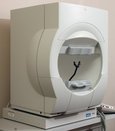 The visual field test machine looks like the machine on your left.  These are the results you might see from the visual field test showing entire sections where the vision is missing. This isn't my son's exact picture but it looks pretty similar. Another common exam is the ERG (Electroretinogram). To date, my son hasn't had to take this exam because genetic testing has proven what his disease is without needing the ERG. We were fortunate that we were able to participate in a free genetic testing program for retinoschisis. However, many people with retinal degenerative diseases don't have that fortune so they must endure the ERG. My son will need to also endure it if we are to participate in an upcoming clinical study for his disease, but I will think about that later. Just take a look at the picture below and tell me if you would want your child to have to deal with this! 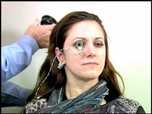 The ERG measures electrical activity in the eye. A contact lens is placed on the eye. Lights of different colors and strengths will then be flashed on a screen in front of you. Sounds fun, right? All in all, these tests can take at least 4 hours. Never mind the waiting time between each test. When it's all over, there's no way to even think you can accomplish anything else for the day. These tests are mentally and physically draining on both the patient and the parent. Luckily, my son only has to deal with them once a year. Others, whose diseases are less stable, deal with them twice a year. I can't even imagine.
We go to the ophthalmologist next Monday for my son's annual visit. Please send your prayers. And, yes, if you want to help END THIS MISERY for my son and millions of others, please consider contributing to MOMS for Sight to help fight research: DONATE A fellow MOM just recently found out that her daughters, who have LCA, have such a rare form that doctors can't identify it. She was hoping to hear that they had the kind that has already been through a clinical trial with positive results. At least, that outcome would provide hope for a cure sooner. Unfortunately, many moms get this kind of news. These diseases are so rare. Many people know they have a retinal degeneration but don't fit into a specific identified disease. It is extremely frustrating when you just don't have the answers you want. It's hard but we have to keep going for our kids. We have to be positive for them. We have to make sure they never give up hope of a cure, while at the same time help them accept the reality of their vision loss. No matter how tired we are, we can't stop. We watch our kids struggle. My son has to read six books this nine weeks. Most of them we can download on his iPad and he can make the print as big as he wants. He is reading To Kill a Mockingbird right now. You can't download this book in iTunes. I couldn't find it anywhere electronically. So, I ordered him a large print book. After he reads for an extended period of time, he rubs his eyes and complains of a headache. He can't stop reading though. There is a time limit. 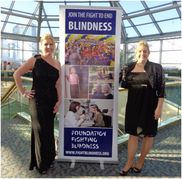 Two major events for the Foundation Fighting Blindness (and MOMS for Sight) are over and part of me says it's time to rest. The problem is the "MOMS" are so dedicated, there's no such thing as rest. Black Ties and Blindfolds was a huge success and thanks to all of the support, MOMS for Sight was able to contribute over $6000 to fight blindness.We had a great time for a great cause and are already preparing for next year. 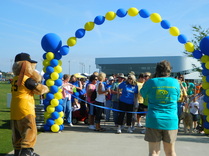 Two MOMS co-chaired the 2013 VisionWalk. We helped raise over $107K! We had over 460 walkers. It was a great day and raised the spirits of many participants. This was the 5th Jacksonville Walk and was the best over. Now we ask, "What's next?" We are tired. We are worn out. We accomplished a lot but there is still so much more to do. We need to raise more funding for research so that no other mother has to sit at her desk feeling defeated and hopeless because her childrens' disease can't be diagnosed or worse yet, can't be cured. Remaining hopeful is hard but there is simply no choice. The "MOMS" in Jacksonville have helped each other and become friends with other "MOMS" around the state and country. When one of us feels that desperate moment and has a hard time functioning, the rest of us, hold her up. If you'd like to help, please click on our donate page: http://www.momsforsight.org/donate-directly.html I know they don't mean any harm when they say it, but it kills me every time. No, my son doesn't look blind. As a matter of fact he's not totally blind. My son is legally blind. There's a huge difference. Everyday we are grateful that he has some vision. However, just because he doesn't look blind, doesn't mean that he can do everything fully sighted people can do, without some accommodations anyway. That's why he has an IEP with accommodations. That's why he is a part of the Division of Blind Services. That's why he is in the Transitions Group at ILAB. He needs to learn how to succeed despite his vision impairment and he will use whatever tools are available. The last thing he needs is a teacher (or a coach) saying "he doesn't look blind" and then ignoring the fact that he needs accommodations.
The fact is, his disease is degenerative. So, one day, he could be totally blind (we hope that NEVER happens). It takes a strong human being to go through life everyday with a visual impairment. It takes an even stronger one to know that your vision can get worse and worse and God forbid go away completely. My son is one of the strongest people I know. There's nothing that can be done to fix it. Another famous line from people: "He wears glasses. Doesn't that fix the problem?" No it doesn't. That fixes his astigmatism. Without his glasses, he wouldn't even be able to see the E at the top of the eye chart. Another question I get frequently: "Why can't they do an eye transplant?" Because it's a retinal disease. An eye transplant is really a cornea transplant. The retina is behind the cornea. The retina is what takes in the light and reflects it to the brain so people can see. The retina cannot be transplanted at this time. We hope one day that changes. Another thing I hear all the time is: "I'm so sorry." I don't want anyone to feel sorry for us, especially my son. Instead, I want everyone to help join our fight to cure these retinal degenerative diseases so my son and the other 10 million people in the United States dealing with similar diseases will never have to worry about losing their sight. To me, losing sight means not being able to see my husband's face when he smiles at me. It means not being able to watch my child grow up. It means never being able to drive. It means living in darkness. Please help us make sure this doesn't happen to people anymore. The world is a beautiful place and everyone deserves to see that beauty. There are many ways you can help. Just email us at mailto:[email protected] if you want to get involved. Since my son was diagnosed with a retinal degenerative disease and the doctors told me that his chances of having detached retinas are greater because of the disease, I've always wondered, what can he do? what can't he do?
Some sports were just out of the question. Football could lead to a blow to the head. No way. Baseball was out because he wouldn't be able to see the ball coming at him until it was right on top of him. Yep. Another blow to the head scenario. Am I too overprotective? Many people told me that I should let my son do what all of the kids around him are doing. That fact is, my son is not like other children. He has a visual impairment. As his mother, it is my job to protect him. I couldn't let him go through life without doing anything though. That seemed wrong. We settled on karate. In karate, at least he has some control over the situation, although, there were many times when I cringed watching him spar with other kids. After five years, he earned his black belt. He's in his last year of middle school now. After walking to the bus stop for the last two years, he decided he wanted to ride his bike to school instead. The school is only two miles away. Of course, as his mom, my first instinct was to say "no" because of the dangers. He would have to cross a fairly busy street and ride on uneven sidewalks all the way to school. He convinced me that he could do it and that he could see well enough to be able to tell when cars were coming up on him. For the first six months all went fine. Then, last week, I got the call from my son, panic in his voice, "Mom, I can't move my arm. I got into an accident." I ran out of a meeting with my boss and drove as fast as I could from downtown to where he said he was. When I got there, I was greeted by a blocked road, an ambulance, a fire truck and police officers. My son was in a stretcher. It took everything I had to maintain my composure without running to him screaming! The paramedic thought he broke his shoulder. I got him to the hospital where we found out he actually tore his AC joint, the ligament that holds his shoulder and clavicle together. He was in so much pain. We were told that he'd have to wear a sling for 3-6 weeks. It could've been so much worse, but still, guilt invaded every part of me. This was all my fault. What was I thinking letting my visually impaired son ride his bike to school? He promised me that it wasn't because he didn't see the dip in the sidewalk but that he just wasn't paying attention. In the hospital, I could just imagine what people must've thought of me. How could this mother let her son ride his bike? Later when I told people what happened, quite a few literally asked, "Why was he riding a bike to school in the first place?" The fact is, he's getting older. He's needs to figure out on his own what he can and can't do. As hard as it is, I have to let him. Did he wreck because he couldn't see? I'll never really know. He wants to try out for the swim team (if his shoulder heals on time). Once in high school he wants to be on the golf team too. His Pop-Pop taught him how to play and he's actually pretty good. My son is old enough and smart enough (most of the time) to make his own decisions about what he can and can't do. I just have to make sure I'm not the thing that holds him back. Even though, I'll ALWAYS be there for him, it's time for me to let go a little, as hard as it is. A few years back, I learned of a mountain climber who climbed to the top of the seven highest peaks in the world. That in itself is amazing. The more shocking part is that he is blind. He has the same blinding disease my son has. He lost all of his sight by the time he was 13. His name is Erik Weihenmayer. Immediately, I started researching this man.
Some of you might know Erik from that reality show called Expedition Impossible. His team finished second. In the show, Erik was able to show the whole world how he turned his adversity into a fuel to achieve greatness. He is an awesome role model for my son and for anyone who could ever think that an adversity in life can hold you back. Erik doesn't just stop at climbing mountains and being an adventurer. He shows others how to do it too. He leads many adventures with wounded warriors and children with disabilities from all walks of life so that more people can feel what it is like to turn that adversity into greatness. What an amazing thing he's doing for the world. What does every parent want for their child? Greatness, A sense of self-worth, An enlightened mind, Happiness, A fulfilled life, Fulfilled goals, Love, Laughter, Family, and the list goes on. For many parents of children with disabilities, there is some sort of defeated feeling thinking these things might not happen. Don't despair!! An adversity should never hold a person back from greatness, whatever that greatness might be. In Erik's book (co-written by Paul Stoltz), The Adversity Advantage, they discuss the different "summits" one must reach to achieve this greatness. I think that's how I will try to teach my son how to approach life - by these summits. He wants to be an aeronautical engineer. He can't get there by wanting it. He has to work hard to get there. His first major summit was to do great in school and get accepted into an advanced college-bound high school program, one that will help get him into the kind of college that focuses on aeronautical engineering. I'm proud to say that he has reached his first summit. We received word this week that he was accepted into the AICE program developed by Cambridge University. He will be able to focus on Math and Science there and complete many of his college credits while in high school. His next summit is to actually succeed there. Keep your fingers crossed for him! My favorite part of The Adversity Advantage is a paragraph titled "Life is Not Fair. Next?" Does it stink that my son was born with a blinding disease. Absolutely. Is it horrible that a woman suddenly loses use of her legs? Definitely. We all have some sort of adversity we're facing. It doesn't have to be a physical disability. It can be a mental one. Or, it can be the loss of someone close. Adversity is all around us, big and small. It sounds heartless but life isn't fair. Move on. Don't just sit there quietly and try to get through each day. Harness that adversity. Take all the feelings of anger, sadness, and despair and turn them into something amazing. Go further than you thought you could go. Erik says that a storm headed his way but instead of running from it, he took it head on! Thank you to Erik Weihenmayer for his motivation! Since my son began receiving accommodations in the classroom, he is able to use a variety of things that help him get through his school day easier. 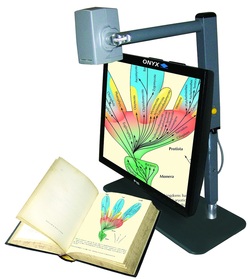 Here is his CCTV. With this, he is able to aim the camera anywhere in the classroom and have the image appear on the screen right in front of him. The cost of this is astronomical. Luckily, it is covered under his Individual Education Plan. He has two of these. Unfortunately, they are not easily mobile. So, he has one in his math class and one in his English class. For the rest of the classes, he must use magnifiers and have the teachers prepare assignments in large print.  These are his large print books for the year. Some classes have as many as of four books. In regular size text, each class only has one book. How would you like to carry these around? Luckily, my son has two sets, one for school and one for home. Even still, with one of these books on his desk, there's not room for much else. Plus, he almost has to stand up and lean over the book just to get close enough to the top of the page to read it. 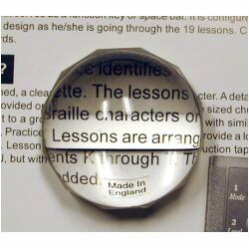 Here is what his best magnifier looks like. It's a globe magnifier and seems to work better than the regular kind with handles. The Florida State University Low Vision Initiative has accepted him in their program this year. In that program, he will be tested to see what other magnifiers will work well for him. We are hoping they will find something that will eliminate the need for the giant large print books. While all of these aids are wonderful and help him see better, we are still looking for the next best thing. At the Foundation Fighting Blindness annual conference, VISIONS, we saw all kinds of great devices that are smaller, lightweight and VERY expensive. I'm not sure why all of these things are so expensive. For instance, the school is trying to order him a large print scientific calculator that he will need for Algebra II, Trigonometry, and Calculus. The problem is, the calculator is over $300. How can a calculator cost so much? It's wonderful that these tools exist and that they are provided for my son without cost to us. For all of the crazy things our taxes sometimes seem to go to, I see how sometimes they go to great causes, including helping those with disabilities learn.
As someone who is constantly fighting for a cure for blindness it is hard to imagine embracing blindness. Then, one day, I listened to a blind professor talk about how she embraces her blindness and that she’s not this flawed human being just because she can’t see. It got me thinking. By teaching my son that we should fight for a cure for his blinding disease am I also teaching him that he has this flaw that has to be fixed? Then I thought what would he be like if he was born without this disease? The fact is he wouldn’t be this amazing, smart, funny young man that is my son. He would be someone completely different. I don’t want that. This disease is part of my son and if I don’t embrace it then I’m not fully embracing my son. Even if there is a cure one day, this disease has been part of his life for years and it will always be part of him.
So how do I walk that fine line of wanting to destroy the disease and embrace it at the same time? What is good about a blinding disease? It’s hard to imagine anything good about it, right? Wrong. It’s introduced us to a whole community of people who support each other. It’s helped my son speak up for himself when he needs help. It’s helped him make adjustments in life when he should. It’s taught him to stand up to any challenges in his way. He has the school system, the Division of Blind Services, friends and family all there to help him if he struggles. This disease has actually opened up doors for him that most kids don’t get to walk through. Some might say he’s lucky until they remember it’s all because of this blinding disease. He never seems to be bitter about having the disease though. It is what it is and he just keeps moving on through life as he should. He fights for a cure though too. Scientists are getting closer and closer to a cure each day so there is plenty of hope that my son’s disease can be cured. Some treatments have already brought sight back to kids with similar diseases so we know it’s possible. It’s a very exciting time. Then I wonder what will he be like as a fully sighted person? Will he change? Yes, he’ll be able to drive and he won’t have to put books two inches from his face anymore, but what else will change? I hope one day we have the chance to find out. If it doesn’t happen, will the world end? Of course not. My son will continue his journey the same way he has been, with kindness, strength, and courage. Probably one of the hardest things a mother can do is ask for help. When my son was in elementary school, I was able to explain to all of the teachers that he was visually impaired. Without any official accommodations, they were always amazing to work with. They had him sit in the front of the class and made sure he had larger print when needed. He always made straight A's and passed the FCAT with 4s and 5s, so why should we "label" him and make him go through all of the things that come with an official plan? Plus, I watched my brothers go through school being told they would have to work harder than anyone else just to keep up. They managed to excel. If I could teach my son the same thing, it would make him stronger, right?
Once he hit middle school, things got much harder. First of all, he had numerous teachers who had hundreds of students. They didn't have the time to make special accommodations. Plus, the writing in the books had suddenly become much smaller. For the first time, my son said he was having difficulty. All of a sudden, it felt like it was my own pride holding my son back. That wasn't right. I made the call to get him set up with an official Individual Education Plan (IEP) and we got involved in the Division of Blind Services (DBS). Little did I know how much our lives would change. All of a sudden, people were bending over backwards to make sure my son had the accommodations needed. Within weeks, we had large print books for him, CCTVs in the classrooms, and teachers that embraced him and helped him however they could. Also, because he was given more time on tests and they were given in large print, there were no longer any 4s on the FCAT. He got all 5s. I never realized that by trying to make him "stronger" I was actually holding him back. Now, DBS and the Independent Living for the Adult Blind (ILAB) got him involved in a summer work program and he gets to go do so many amazing things with other teenage visually impaired children -- things I could never afford to do for him myself. They are talking about giving him tours NOW of the University he wants to attend where he wants to be an aeronautical engineer. He's only 14 and already I feel like there's no way he can do anything but succeed and it's because of all of the love and support of family and friends, but it's also because of that day when I got the courage to call for help for my son. Sometimes, it's okay to ask for help. It doesn't make you weaker. In fact, it can open up a whole new world! So, I always knew I had the chance of passing X-Linked Juvenile Retinoschisis to my son if I had one. After all, my brothers have it and my cousin has it. Basically, any male in my family who could get it, got it. There were different levels though. One brother was legally blind in one eye, the other legally blind in both. I think my cousin was pretty close or legally blind in both.
The minute I knew I was pregnant, I wanted to know if I was having a boy or girl, not just out of curiosity, but also for the fact that boys display X-Linked Juvenile Retinoschisis and girls only carry it. I found out I was carrying a boy. My husband loved baseball. He couldn't wait to hear that he was having a boy. In my heart I knew that if I was having a boy, baseball might not be an option. I tried to tell my husband not to get his hopes up. Playing baseball with X-Linked Juvenile Retinoschisis would not only lead to teasing (like I saw a boy do with my older brother and vigorously tried to defend him by hitting the boy with a baseball bat - which only led to us both running home in fear for our lives), but it could also lead to damage to the head and retinal detachments. Anyway, I asked my OB/GYN how I can check to see if the baby was going to have this disease. She asked me, "What does it matter at this point? You're pregnant." I realized that she was right. No matter what the circumstance, we would learn to deal with it and love the beautiful baby we were about to have. My son was born in September and it took us about three months to find a doctor in Jacksonville that knew how to diagnose X-Linked Juvenile Retinoschisis. Once we found him, we were hit with the news that the 50/50 chance my son had of getting this disease totally didn't work in our favor. After a painstaking four hours of diagnosis, metal clips that held his eyes open, and many screams from my precious baby, we learned that he had the disease and he had it pretty bad. The doctor drew out a picture of where the cysts were in my baby's eyes. He explained that my son would be lucky to have anything close to normal vision but that we really wouldn't know until he was older and could take more tests. My husband couldn't even stay in the room to hear the screams of his son. Once he heard the diagnosis and his dreams of a baseball playing son immediately vanished, then came the blame game. Not to say my husband blamed me. I think he just blamed himself for marrying someone he knew had the possibility of carrying this disease. Regardless, he loves his son very much. He's not my husband anymore though. I guess I took a different approach. Number one. Never let my son feel sorry for himself. Number two. Never let him use his visual impairment as an excuse. Number three. Fight to do whatever I can to end this disease and help raise money to find a cure for my son. Number four. Make sure my son, nieces and nephews NEVER have to go through the moment a parent finds out their child has a blinding retinal disease. Number five. Find others out there like me because I knew I couldn't deal with this alone.... Blog number one. That was just when my son was a baby. He's 14 now so I have many more blogs to come. I welcome any comments or contributions to the blog from other moms, dads, kids with retinal degenerative diseases (regardless of your age), grandparents, you name it... |
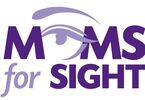
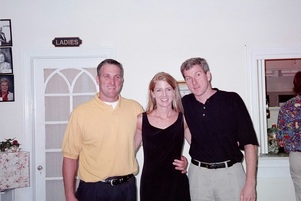
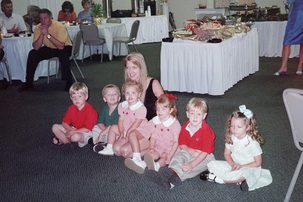

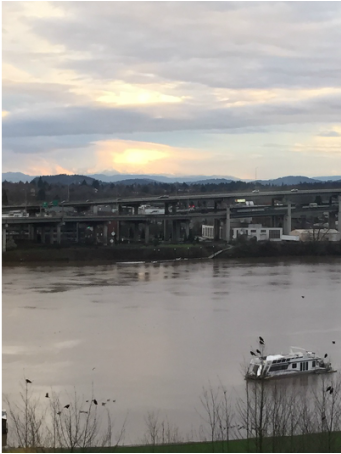
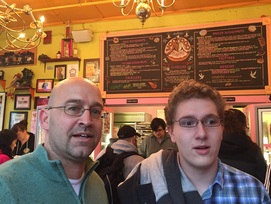
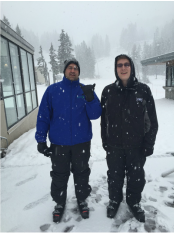
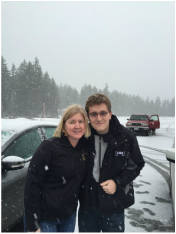
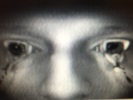
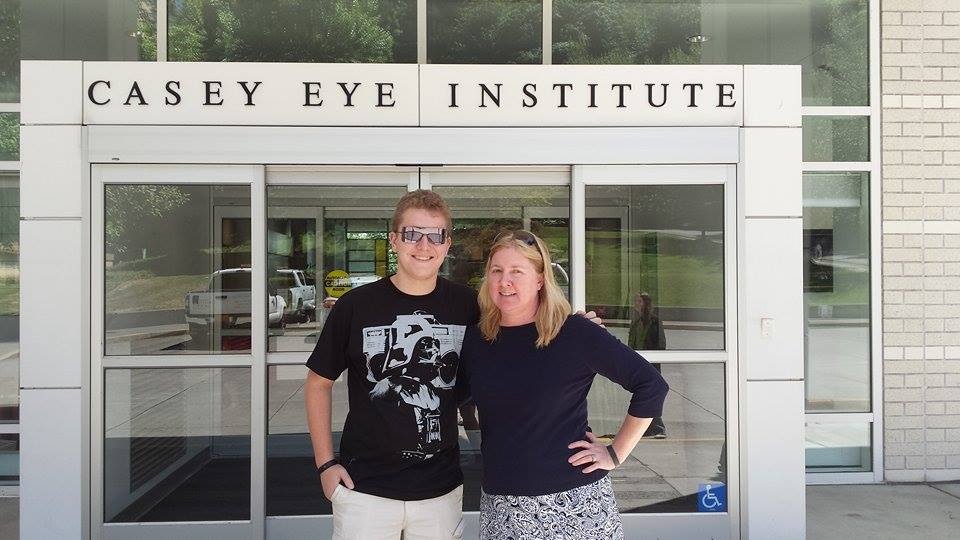
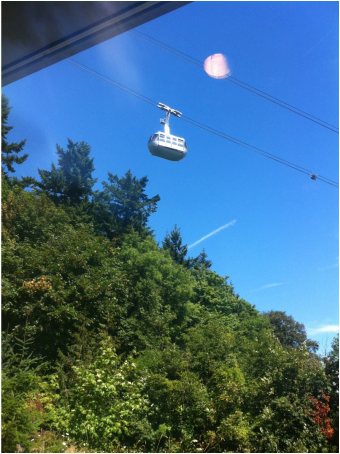
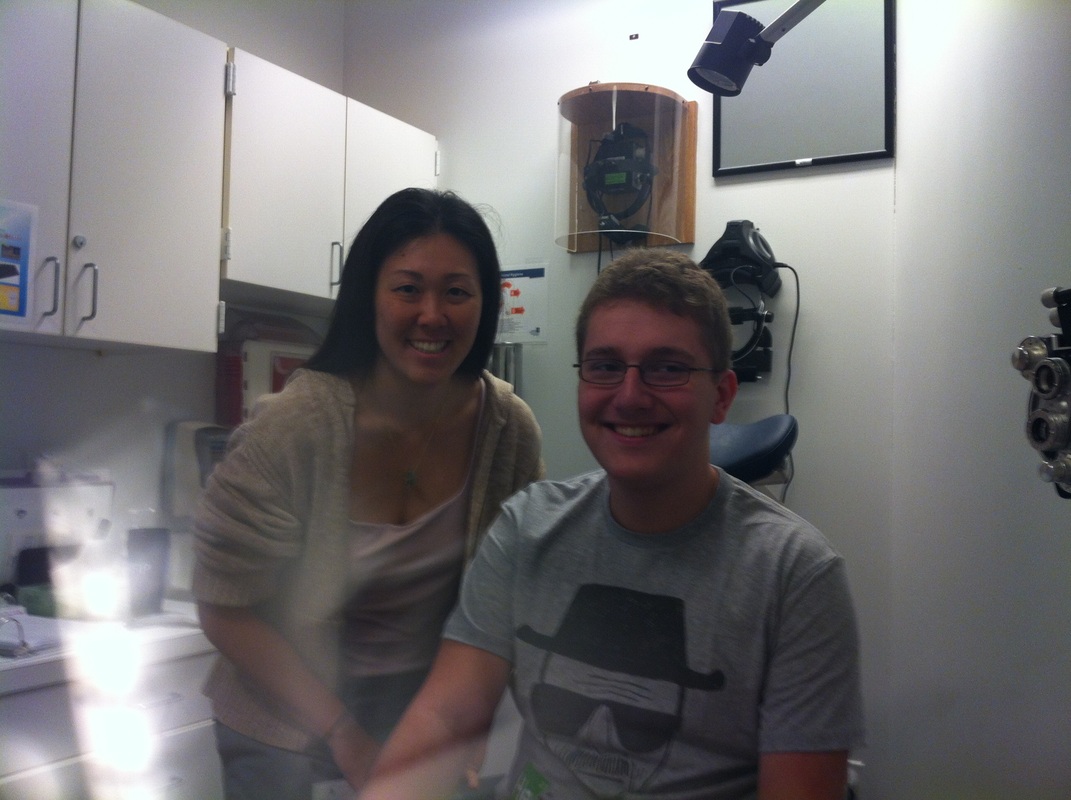
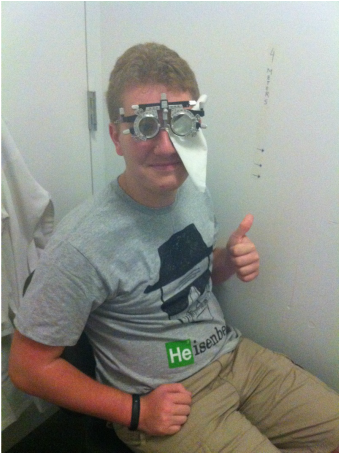
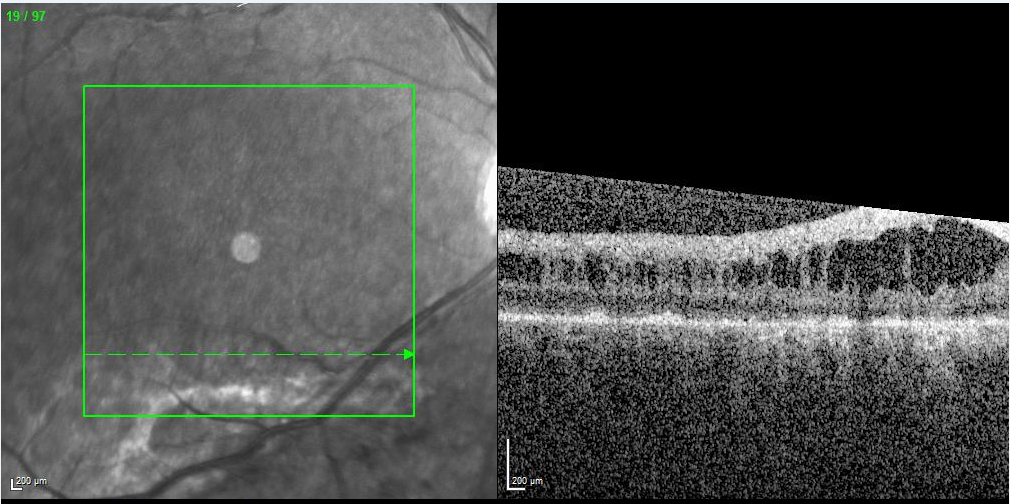
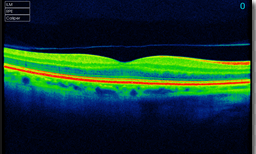

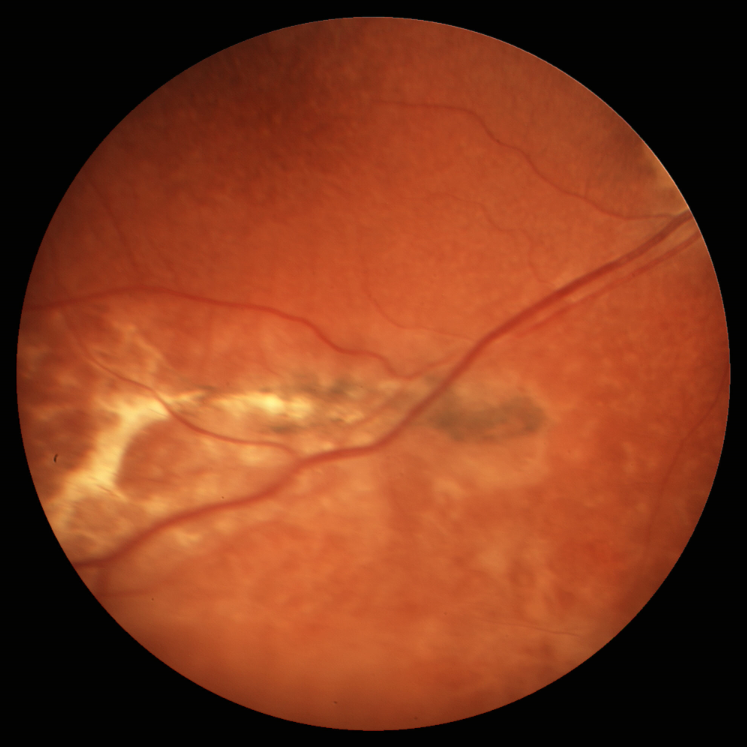

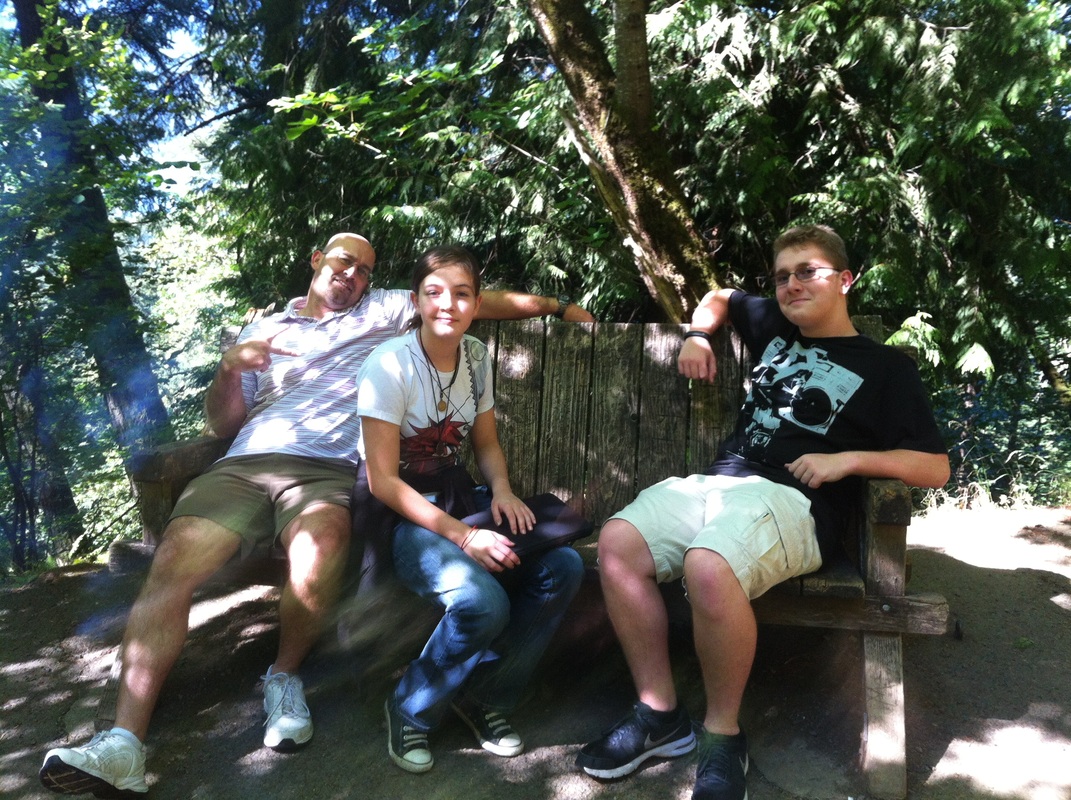
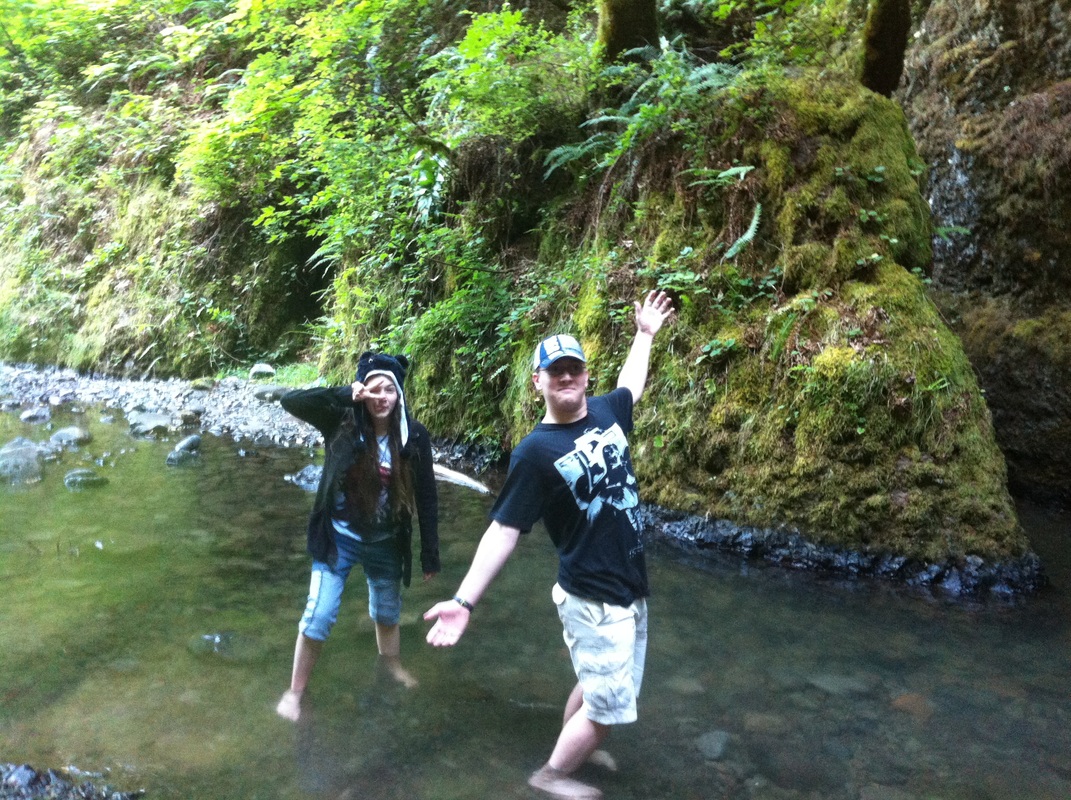
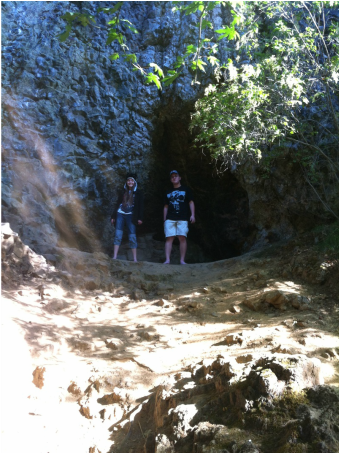
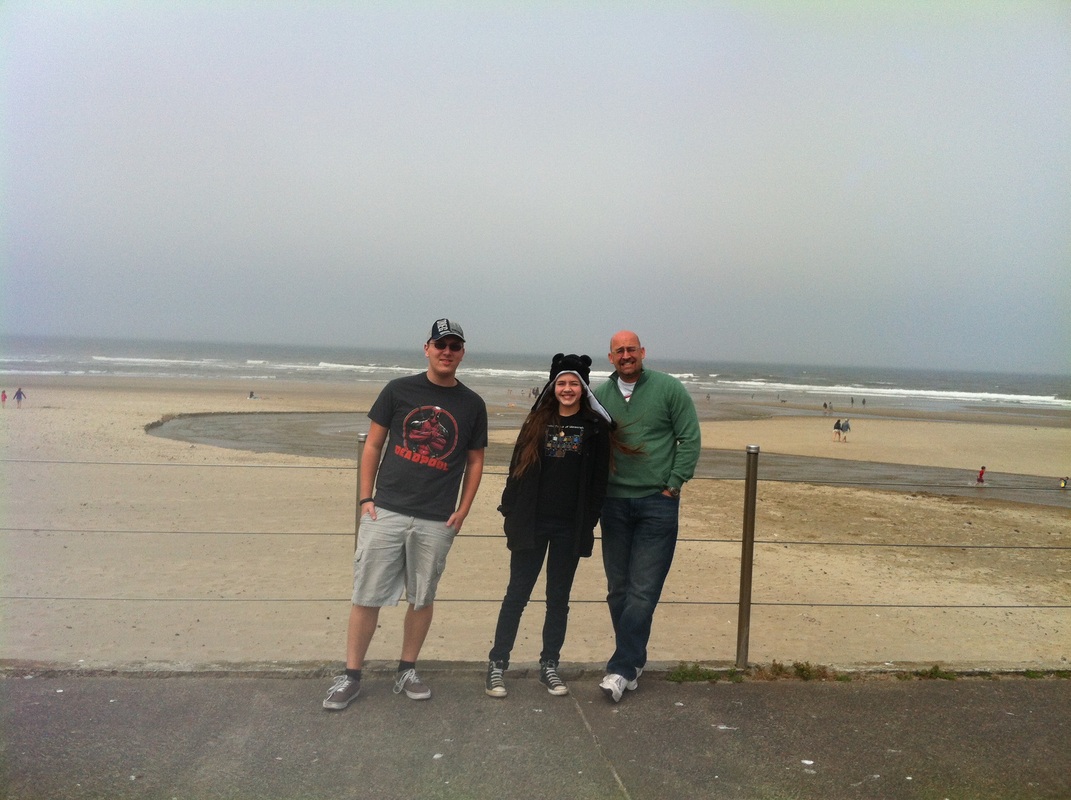
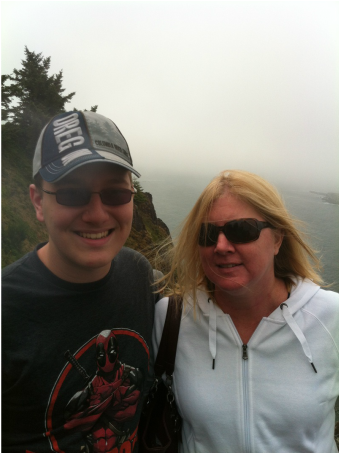
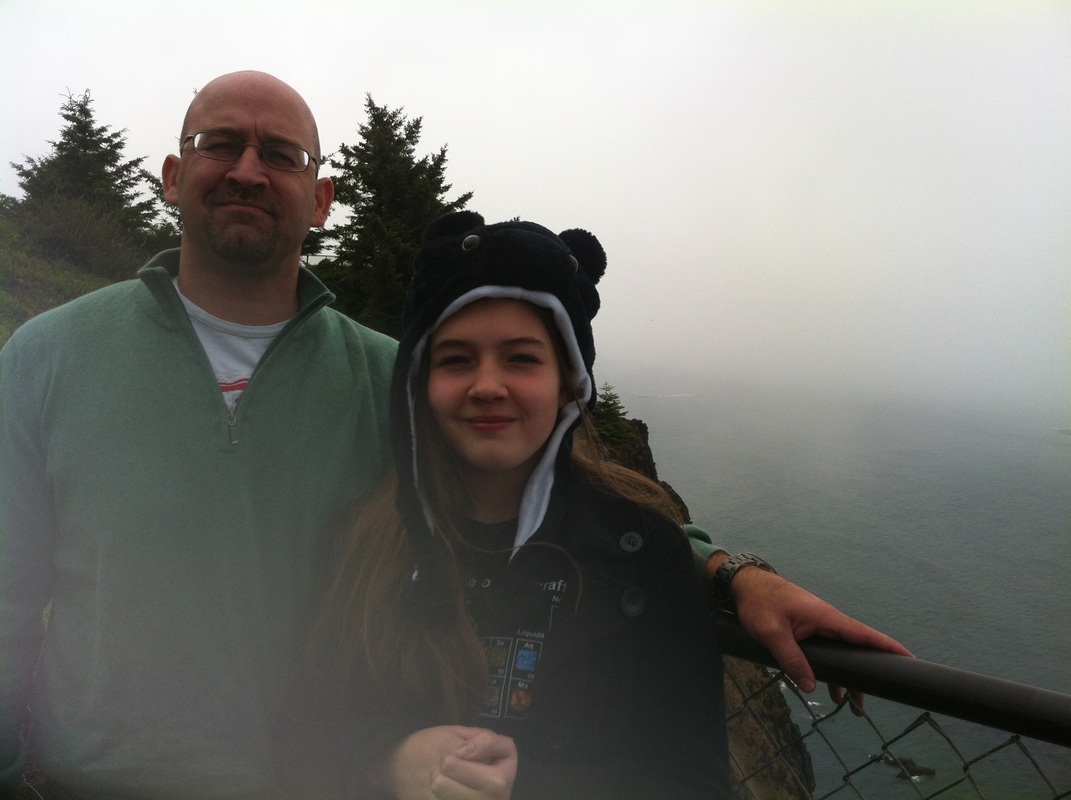

 RSS Feed
RSS Feed